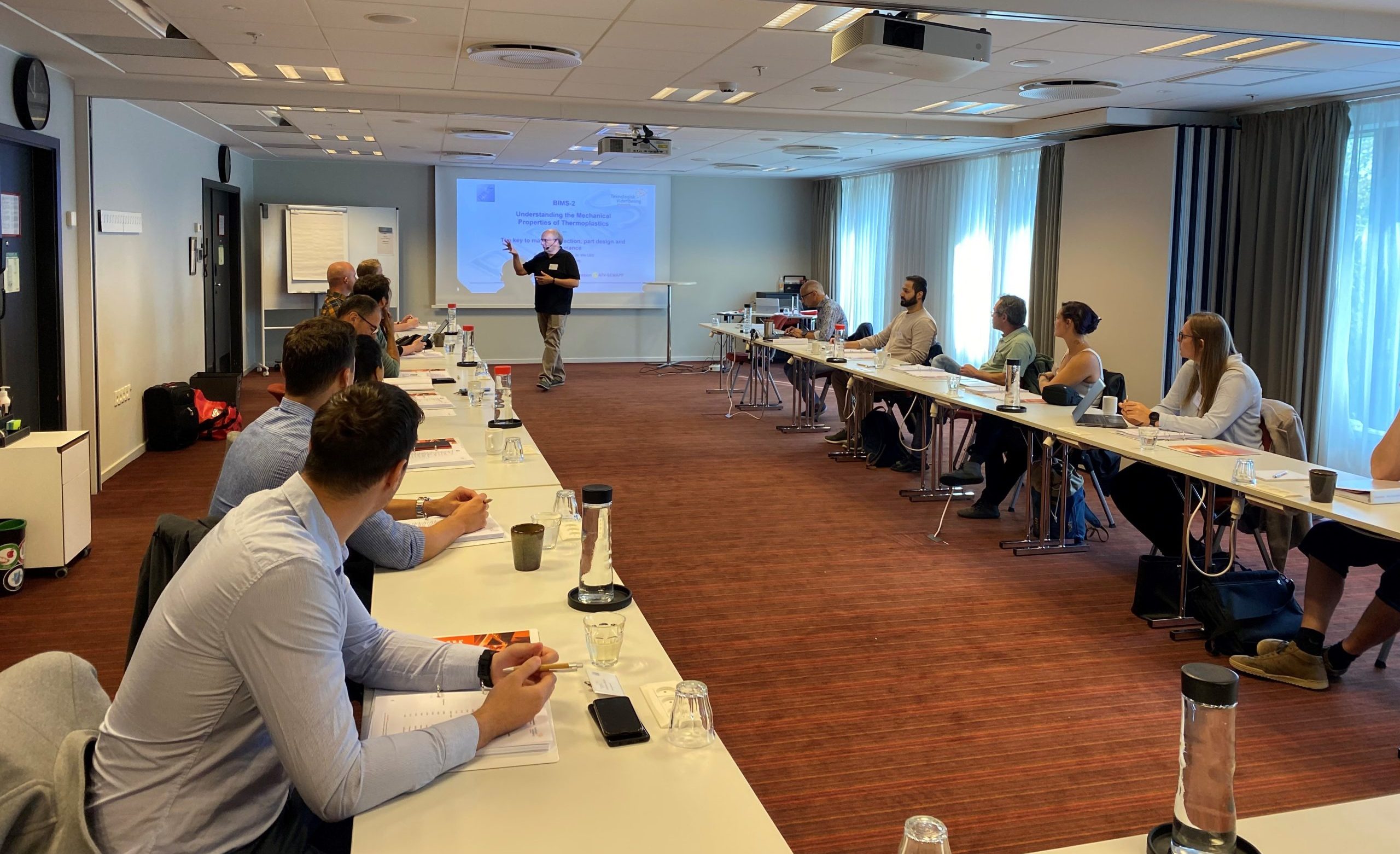
Kursus om termoplasts mekaniske egenskaber
Teknologisk Videndeling inviterer til kursus d. 2.-3. oktober 2025 på DTU i Lyngby. Kurset giver en indsigt i termoplasters mekaniske egenskaber.
Dette kursus, uanset deltagelse i BIMS-0 eller BIMS-1 (Forståelse af sprøjtestøbning af termoplast), fokuserer på plastens komplekse mekaniske ydeevne og introducerer centrale adfærdsmønstre som viskoelasticitet, ikke-linearitet, krybning, slag og fejlmekanismer. Det henvender sig til en bred målgruppe, herunder design- eller maskiningeniører, støbere, FEA-specialister, projektledere, forskere, materialespecialister, studerende og erfarne fagfolk.
Professionelle inden for plastkomponentdesign eller materialespecialister kan forbedre deres forståelse af de komplekse termomekaniske egenskaber ved polymere materialer med dette kursus. Denne viden er afgørende i lyset af de komplekse fejlmekanismer i plast, herunder krybning, slagpåvirkning, spændingsrevner, flydning, sprækning og sprødhed.
Kursusmålet er at give deltagerne en dybdegående introduktion, uanset deres baggrund eller erfaring, inden for en kort, to-dages tidsramme. Selvom kurset ikke er udtømmende, går det dybt nok ind i emnet til at skabe et solidt vidensgrundlag. Det forbereder deltagerne til specialiseret læsning eller træning inden for deres specifikke interesseområde.
Kurset er på engelsk.
2. oktober 2025
10:00 - 17:30
Denmark’s Technical University
Meeting Center, building 101, room S12
Anker Englundsvej 1
2800 Lyngby
11.250 kr/ 11.950 kr
19. september 2025
Course content
The teaching material (over 250 slides) provides an in depth introduction in the field of plastic mechanical performance. Upon completion of the course, participants will gain insightful answers to a variety of common questions encountered in the realm of plastics, including:
- Why does the modulus of plastics exhibit significant changes with temperature, and why does this change vary among different polymers?
- Why do amorphous polymers often undergo brittle failure in long-term tests or impact, while some demonstrate resilience in such conditions?
- What constitutes the “brittle-ductile” transition in polymers, and why are some polymers ductile at specific test rates but brittle at lower and higher strain rates? What role does test timing play in plastics?
- How does plastic performance undergo considerable variations with processing conditions, even in unfilled and amorphous states?
- Why do polymers undergo aging, and what implications does this have on their performance?
- What mechanisms underlie rubber reinforcement, and why is the morphology of these blends crucial, necessitating tailored formulations for each specific polymer?
- What is Yielding? What is plastic flow? Why do certain polymers exhibit “shear-banding” and necking in tensile experiments, while others do not?
- What role does crystallinity play in the mechanical properties of plastics?
- Why, at the same temperature, do polymers generally fail at different times and stress levels in short versus long-term (creep) tests? Can long-term performance be predicted from shorter-term tests?
- How can the intrinsic mechanical properties of polymers at large strains be accurately measured without artifacts like necking or premature failure?
- Why do glass fibers enhance modulus and strength but reduce elongation at break? What are the reinforcing mechanisms, and how critical is the interfacial strength between the matrix and filler? What constitutes the optimum fiber length?
- Why is it common to test plastics with and without a “notch”? What occurs at the notch, and why do some polymers still perform when notched while others do not?
Registration
Registration fee
- 11.250 DKK – Members of Teknologisk Videndeling and promoting partners listed in the registration form
- 11.950 DKK – Non-members
Includes sessions during the two days, educational materials, luncheons and coffee breaks.
All prices are excluded of Danish VAT 25%.
Save 1.000 DKK when registering before 22 August 2025.
Min. 6, max. 25 participants.
Cancellation
Registration is binding, however substitutions are accepted at any time.
In case of questions please contact us at e-mail teknologiskvidendeling@construct.dtu.dk or call +45 2724 2782/ +45 9351 1276
Det sker i Plastindustrien
Arrangementer & Events